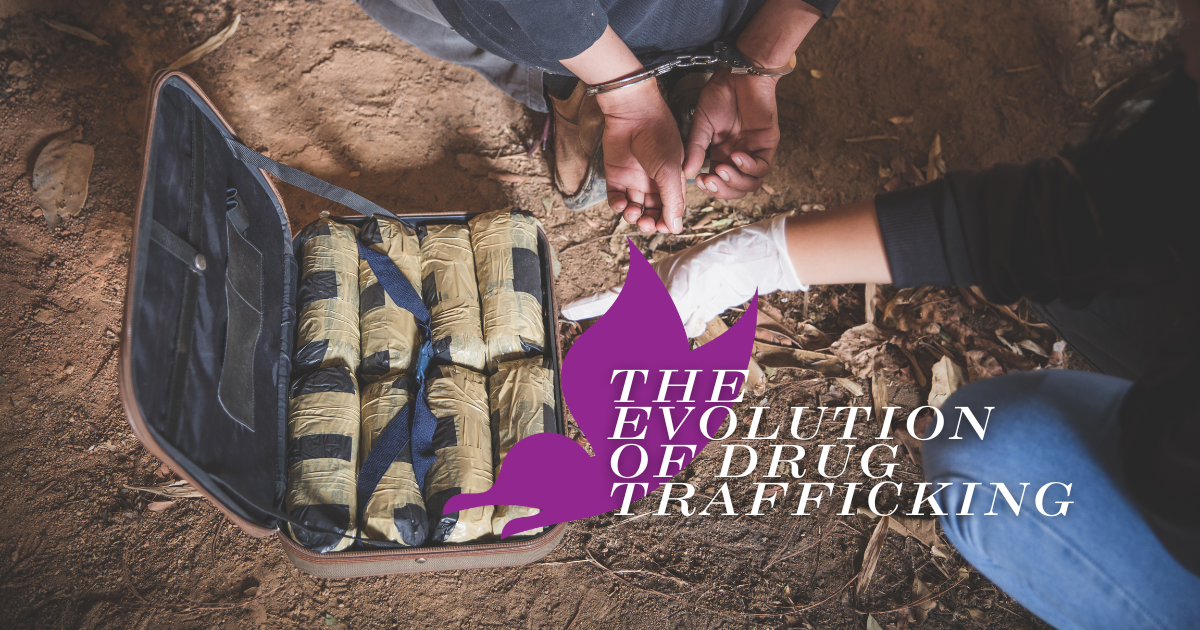If you are experiencing physical or emotional abuse, do not hesitate to reach out the National Domestic Violence Hotline, which provides 24/7 support for any type of domestic abuse and can be reached at 1-800-799-7233
Emotional abuse and substance use disorders can have a complex and co-occurring relationship. For example, according to the National Coalition Against Domestic Violence, roughly 40-60% of domestic violence cases are suspected to be caused by or exacerbated by the presence of substances and substance abuse.
Additionally, according to the Substance Abuse and Mental Health Services Administration (SAMHSA), people who experience mental disorders such as depression and anxiety are also more likely to qualify for having a substance use disorder. Trauma victims also frequently suffer from substance use disorders. This occurs because of attempts to self-medicate to treat symptoms of trauma such as anxiety, stress, depression, and anger.
Generally speaking, the correlation between those suffering from mental health disorders with substance use disorders are inordinately high compared to that of the general population. According to the Substance Abuse and Mental Health Administration, approximately 7.9 million adults had co-occurring mental health and substance use disorders in 2014, with that rate highest for those aged 26 to 49.
While the odds of developing an addiction is higher for those who suffer from emotional abuse and mental health disorders, there are ways of recovering from this type of damage and overcoming emotional abuse without resorting to using substances. We’ve compiled tips and advice from the American Society of Addiction Medicine, the National Coalition of Domestic Violence, and Substance Abuse and Mental Health Services Administration to provide 10 guidelines for overcoming emotional abuse without resorting to substance abuse.
Understand What Emotional Abuse Looks Like
Understanding what constitutes emotional abuse is the first step for overcoming it. According to licensed psychotherapist Jessica Cline, emotional abuse takes shape through several signs. Overall, it is a continued pattern of behavior that inflicts emotional harm through actions such as incessant criticism, manipulation, shaming, bullying, withholding love, threats, ultimatums, and over controlling.
There are overt forms of emotional abuse such as direct insults, attacks, cheating, and property damage, but there can be subtle emotional abuse signs such as passive aggressive belittling and manipulation that may be more difficult to define. No matter what type of emotional abuse you may be suffering from, the important thing is to recognize that these are a defense mechanism designed to make you feel worthless so the abuser feels good about themselves.
According to Psychcentral, several signs of emotional abuse include:
- Name calling
- Character assassination
- Yelling
- Humiliation
- Belittling your accomplishments
- Putting down your interests
- Threats
- Lecturing
- Outbursts
- Treating you like a child
- Walking out of situation
- Jealous
- Denying their abuse
- Trivializing your needs
- Withholding affection
- Lack of respect for your privacy
- Damaging your property
- Blaming you
- Alienating you
- Excessive gift giving
- Controlling resources
Understand What Should Happen in a Healthy Relationship
Many people have a difficult time understanding whether they are in an abusive relationship because they have never been in a healthy relationship. They may not understand what constitutes emotional abuse or they may have a hard time accepting that their partner could be abusing them emotionally. Some may even be in a state of denial about their situation. One way to get a better perspective would be to examine what the characteristics of a healthy relationship look like. Some signs of a healthy relationship, according to psychology today, include:
- You and your partner deal with conflicts without threats
- You and your partner do not lash out when you receive criticism
- You and your partner know how to say no to one another
- You and your partner openly express your feelings to one another
- You and your partner willingly help one another and share your needs
- You and your partner both keep your own identity in the relationship
- You and your partner respect and love each other’s differences
If you find yourself not identifying with several of these descriptions, there may be aspects of relationship that indicate emotional abuse.
Recognize That Some Actions Are Not Okay
Once you have recognized that there are signs of emotional abuse in your relationship, you need to accept that this type of behavior is not okay. Many victims of emotional abuse find ways to make excuses or make peace with abusive actions. They may think that they deserve to be treated this way or that they have no other options other than to put up with it. The reality is that no one should have to put up with physical or emotional abuse ever, and recognizing that you are worth love and respect is the first step to overcoming emotional abuse.
Realize That Abuse Occurs in Cycles
Much like the cycle of addiction, emotional and physical abuse can occur in a cyclical fashion that threatens to repeat over and over again if it’s not addressed. The cycle of abuse was first developed by Lenore E. Walker in 1979 to explain the commonalities about patterns in abusive relationships. After interviewing 1,500 women who were victims of domestic violence, Walker proposed four phases to the cycle of abuse.
Tension Building
As underlying tensions build, a breakdown of communication occurs and the victim becomes fearful and feels the need to placate the abuser. However, nothing is being done to address the underlying cause of tension.
Incident
Something sets off the incident in which emotional or physical abuse occurs. It is is usually preceded or followed by arguing, blame, anger, threats, and intimidation. The incident is usually marked by a point where a boundary is crossed, whether emotional or physical that harms the other person.
Reconciliation
The abusers apologizes, gives excuses for their behavior, then blames the victim and denies that the abuse occurred. They also say that it wasn’t as bad as the victim claims it was. They may also accept responsibility and express regret over their actions, though only in theory and not in practice.
Calm
The incident is eventually forgotten or minimized over time and a sense of normal functioning returns to the relationship. Trust and love builds back between the parties and a “honeymoon” takes place.
Reach Out to Family and Friends
Building up your support network is one of the best ways to be prepared for and overcome the effects of emotional abuse. By providing you with an outlet and connecting you to people around you, you can gain a better understanding of what a healthy relationship looks like, gain an outsider perspective of your own relationship, and have a safety net in case of emergency. Social connections also help prevent isolation and loneliness, both of which can cause self-destructive thought processes.
Seek Out Professional Assistance
If you are feeling lost and unable to speak with friends and family members about emotional abuse, there are still a variety of resources you can use to help plan your next steps. Some examples include the National Domestic Violence Hotline, which provides 24/7 support for any type of domestic abuse and can be reached at 1-800-799-7233. Additionally, you can seek out therapists, psychologists, and counselors who specialize in addiction in order to gain clarity into what your next steps should be.
Set Boundaries
Abusers can put intense emotional and financial stress on their loved ones. As master manipulators, they are generally skilled at getting their loved ones to cave to pressure one way or the other. You will need to learn how to set boundaries to make sure that your abuser is aware of the lines they cannot cross. It may help to develop some assertiveness techniques to help you put your foot down. For example, this could mean refusing to lend any more money, or letting them know you’re uncomfortable performing a task for them. The important thing is to be honest with yourself and with your loved one about your expectations and what you will and will not tolerate. Emotional abusers depend on your leniency when it comes to being permitted to continue their cycles of abuse. If you show them that you are not willing to take it anymore, you may be surprised by how quickly the dynamic of the relationship may change.
Be Confident
It may be difficult at first, but practicing self love and confidence will help you overcoming the negative side effects of emotional abuse. Your confidence will build bit by bit over time. Some confidence tips you can start practicing now include maintaining eye contact, keeping an even tone of voice, and refusing to be overwhelmed by your emotions. By acting confident and cool in the face of their emotional abuse, it will be harder for them to continue abusing you.
Be Prepared With Clear Example of Your Abuse
In the event of confrontation with your abuser, you should be able to bring up examples of direct and clear instances of abuse. You can practice telling them why their actions and words are not okay. You can use the information you’ve learned about what constitutes a healthy relationship and how they fail to meet those expectations. Let them know that if their behavior continues, it will likely cause the end of the relationship. If they aren’t willing to respect your innate rights as an individual, it may be time to think about ending the relationship.
Know That It’s Not Your Fault
If you do decide to end the relationship and cut ties with your abuser, you may still have feelings of regret, guilt, or wishes to fix things and get back together. Such thoughts are normal in any kind of relationship that ends, but they couldn’t be further from the truth. Emotional abuse is something you cannot allow to happen, and is entirely dependent on the abuser to fix, not you. If you identify with signs of codependency, you may believe that you deserve the pain inflicted on you, but this kind of destructive thinking is unhealthy.
Trauma and Emotional Abuse
Trauma can be a difficult subject to understand. Put simply, trauma is a specific psychological or emotional response to an intensely negative event or series of events. Trauma can as upsetting as a divorce or illness to experiencing the death of someone close to you or surviving sexual assault. Trauma can also stem from years of psychological or physical abuse from a spouse, parent, or friend. What unites trauma is the damage that these extreme experiences cause in the psyche of the person afflicted.
Trauma victims also frequently suffer from substance use disorders. This occurs because of attempts to self-medicate to treat symptoms of trauma such as anxiety, stress, depression, and anger. Treatment providers for both trauma-related symptoms and addiction will benefit from creating integrated therapy and counseling models that address both issues concurrently. Addiction treatment that is not informed by trauma risks harming the patient in the long run by wasting their time and money on a program that does not address a significant risk factor for relapse. The diagnostic and statistical manual for mental disorder classifies trauma according to different types, which include:
Emotional Abuse
Emotional Abuse includes acts such as verbal abuse, emotional abuse, and excessive demands of expectations that could cause an individual to experience physical and cognitive disturbance. This also includes emotional neglect and in the case of a minor, anything that would result in mental disorders.
Using these guidelines, you can hopefully understand how to overcome emotional abuse and either mend the relationship you’re in or find a healthier one. No one deserves to be abused and no one should need to turn to substances in order to deal with any emotional problems.
Next Steps
Landmark Recovery is dedicated to helping you or your loved one as they begin or continue the journey to sobriety. Our team of professionals has the resources and tools necessary to help usher you into the next chapter of your life and put you on a path to greater health and well-being. Visit our website to learn more about our inpatient drug rehab and inpatient alcohol rehab facilities.

Choose Recovery Over Addiction
We're here 24/7 to help you get the care you need to live life on your terms, without drugs or alcohol. Talk to our recovery specialists today and learn about our integrated treatment programs.





